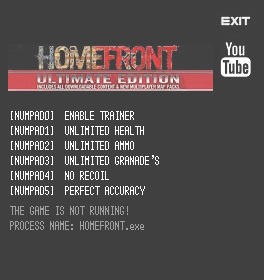

The results of this study call attention to the necessity of training adult educators on issues regarding group dynamics, taking into account all the factors that emerged from both groups.Īshman, A., & Gillies, R.

The trainers highlighted the joint building of the educational context, whilst the trainees focused on the group climate. The findings depicted that although there are common factors emerging from both the trainers’ and trainees’ groups, there are substantial differences between them as well. The discussion guide was selected as the appropriate tool to collect data from both focus groups, whilst content analysis was applied to analyze the research data. The sample consisted of 5 trainees attending the program ‘Parents’ Schools’ and 4 trainers from the same program. Grounded on a qualitative approach to the phenomenon under investigation two focus groups were formed, the data of which were analyzed and compared for possible convergences and/or divergences. 2019 blog topics included geophysics, bird observations, plankton and oceanography.The purpose of the present study is to highlight the factors that influence group dynamics in adult education, as these were shaped through the perceived views of educators and trainees in Parent's Schools in Greece. Under her guidance they contribute to The Field Blog, run by the American Geophysical Union and reaching a broad audience. As the director of CAPSTAN, she designs and implements an at sea training program for masters level students interested in marine science that emphasizes community engagement. Most recently, she chatted with ABC Hobart radio before and after the 2019 CAPSTAN voyage. Abbott also regularly has media appearances following research or training voyages. For both events, the activities she organizes are designed to engage the whole family (Open Day) and the non-scientist students (Open Day, LEAP).ĭr. On campus, Dr Abbott is a regular volunteer for Open Day and LEAP shows. She has initiated school science activities through her role on the department’s outreach committee, and has personally participated in programs such as Skype a Scientist and STEMM Professionals in Schools to further increase the number of schools we are able to reach. Abbott is involved in community outreach through activities such as Pint of Science, a Sydney-wide event inviting the public to join experts for a night of science at a local pub. Abbott has also taught in the field on GEOS373 New Zealand Field Trip and has been a trainer on both the 20 CAPSTAN voyages. She has also given lectures as part of the Topics in Australian Marine Science (TAMS) unit for students doing the Masters in Marine Science and Management. In addition to GEOS206, Dr. Abbott has also given visiting lectures as part of GEOS126, GEOS204, GEOS309, and GEOS700 (Research Frontiers) and supervises student projects in ENVS304 (Integrated Climate Science), FOSC300 (PACE), GEOS348 (PACE), GEOS704 (readings in Geoscience) and GEOS706 (Advanced Field Techniques). GEOS920 Palaeoenvironments and Biogeochemistryĭr.GEOS710 Records of Palaeoenvironments: Life and Geochemistry.GEOS335 Marine Science CAPSTONE unit (convenor).

GEOS206 Marine Sediments: Records of Past Earth (convenor) including 5 day field trip to NSW South Coast near Ulladulla.At Macquarie, her main teaching responsibilities include: April Abbott holds a Graduate Certificate in College and University Teaching from Oregon State University. CAPSTAN collaborators and participants represent every Australian State. CAPSTAN is at-sea education targeted for masters or honours level students that is a first-of-its-kind in Australia utilising the state-of-the-art facilities on board RV Investigator for a truly interdisciplinary training program for those interested in a career in the marine sciences. Since 2017, Dr Abbott has been the director of the Collaborative Australian Post-graduate Sea Training Alliance Network (CAPSTAN). Her current focus is using marine pore waters and scanning electron microscopy of fine grained sediments to better understand the cycling of rare earth elements in the modern ocean in order to constrain the potential diagenetic influences on the paleoclimate record. April Abbott is an early career geochemist with experience working with both organic and inorganic paleoclimate proxies. She is particularly interested in how our knowledge of the interaction between marine sediments and the overlying water column can further our interpretations of sedimentary records of Earth's past climates. PhD, College of Earth Ocean & Atmospheric Sciences, Oregon State University (USA, 2016)Īssociate Fellow of Higher Degree Research Supervision, Macquarie University (2019)ĭr. MSc, University of Minnesota Duluth (USA, 2011) BSc, Hobart and William Smith Colleges (USA, 2009)


 0 kommentar(er)
0 kommentar(er)
